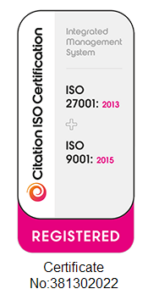Advice From Engagement Experts: The Best Ways to Engage Your Audience
“I’ve learned that people will forget what you said, people will forget what you did, but people will never forget how you made them feel.” – Maya Angelou
When a client asks me to help them engage their audience at a meeting or conference, my immediate reaction is “Of course, but what do you mean by that?”
The fact is, engagement means different things to different people.
An event organiser wants the audience to be motivated to sign up for the next event, whereas a presenter wants to ensure they are having a measurable impact on their audience, such as by achieving through a good net promoter score. In other words, before we can talk about engaging your audience, we need to understand what engagement means to you.
For the team at Open Audience, engagement begins before the meeting starts.
We have established ourselves as experts in the art of understanding the motivations, behaviours and expectations of an audience.
We start the ‘engagement process’ by working with the organising team to determine whether their planned agenda has enough bells and whistles and design formats to ensure that people won’t be bored. It’s about building a stimulating agenda, driven by the intent to create an engaging experience for the audience, rather than just delivering the same old boring content because you have to.
For example, I am currently working with speakers for a medical congress to help them make their presentations more engaging. Part of that comes down to tone of voice and behaviour, but something as simple as how you present your slides can make all the difference.
Often slides are text and data-heavy, making them hard to follow. Having multiple slide builds, where you simply highlight the areas of focus in each slide, makes for a far more engaging presentation that an audience will remember. It might mean more slides, but the result is more effective!
It’s important to remember that your audience is investing their time by attending your presentation, so you need to make it worth their while. How can you achieve that goal? Consider who your audience is.
What do they expect? What do they want? What do they need? And most importantly, do you understand their ‘WIIFM’ (What’s In It For Me)?
Remember that their expectations will be based on their previous experiences. The easiest way to learn about what your audience wants is to ask them, and then try to provide at least some of those elements.
They may not know what they need, but this is where an insightful presentation can produce those “Aha!” moments. Finally, their WIIFM can be met once you know your audience. Presenters who use WIIFM have no problem attracting audiences to future presentations.
Engagement also means looking beyond pre-event and in-event interactions to consider post-event responses.
But how do you do that and exactly what are you looking to measure? Often presenters will have a feedback form, but the responses you get back will only be as useful as the questions you pose.
For example, asking about the venue or whether a scientific discourse was balanced might not help you to understand whether your audience was engaged, excited or stimulated. Knowing the right questions to ask can help you plan for the future and engage your audience more effectively.
In short, audience engagement helps you before, during and after your event, by asking and answering those important questions: what does your audience expect, want or need, and what should they expect to get out of this event?
Improving your audience engagement will help you to deliver an exciting, well-received and relevant experience for everyone involved.
Leslie Robertson is the Founder of Open Audience, an audience engagement consultancy that specialises in making life sciences meetings more engaging with more positive, successful outcomes – whether in-person or in the virtual space. The Open Audience team helps to strategise and prepare pre- and post-meeting as well as providing real-time support and guidance during the meeting. Open Audience also offers customisable, multilingual engagement platforms that include interactive polling, surveys, and ideas exchange.

